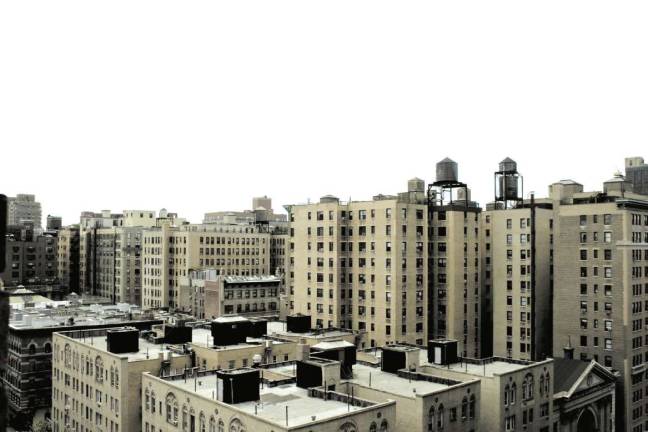When One Percent Matters

The Rent Guidelines Board voted to increase stabilized rents by one percent, in defiance of calls for a rent freeze as well as higher rates pushed by landlords
Upper West Side On June, 23rd the Rent Guidelines Board made a very unpopular decision.
The state board, which determines the rates at which rent stabilized leases may increase from year to year, pleased neither tenants nor landlords. Tenant advocates, including Mayor de Blasio, were pushing for a rent freeze, asking that the state keep rents static while the costs of living continue to climb. Landlords and property owners insisted that they needed the legal ability to raise even stabilized rents in order to adequately maintain their buildings, pay property taxes, and cover energy costs.
The board itself was similarly split, and tensions ran high during the meeting. In the end, a compromise motion calling for a 1 percent increase for one-year leases and 2.75 percent increases for two-year leases, passed 5-4 in favor of the rent increases. In a city with over one million stabilized apartments ? with the largest number on the Upper West Side ? the vote has resonated loudly.
According to the RGB's Housing and Vacancy survey, "housing is considered affordable when a household pays no more than 30 percent of their income in rent." The 2011 study showed that over 34 percent of rent stabilized tenants were paying more than half of their household income toward rent.
Sarah Desmond, Director of Housing Conservation Coordinators, a not-for-profit organization based in Hell's Kitchen that seeks to preserve safe, decent and affordable housing, has said that number has only increased in recent years.
"Rent increases over the past decade have outpaced operating costs; it was a lost opportunity to address that inequality," Desmond said. "A rent freeze would have been historic and sent a strong message supporting the need to keep housing affordable in New York City."
Many property owners viewed the small increase as bad for their business as a rent freeze; they had been pushing for increases as high as 9.5 percent.
Michael McKee, treasurer of the Tenants Political Action committee, discussed the effects of the increase.
"The 1 percent rent increase for one-year lease renewals represents a citywide transfer of $131 million from the pockets of tenants to the coffers of landlords. When you add in the impact of the two-year adjustment (2.75) you're talking about a sizeable transfer of wealth,"
McKee was disappointed in the decision, because he said it doesn't reflect the data regarding the issue.
"So you can see that seemingly modest rent adjustments of 1 and 2.75 percent in fact have a huge impact," McKee said. "These rent increases will greatly enhance landlords' Net Operating Incomes, already at historic highs (almost 40 cents on the dollar). And the RGB had other data, which unfortunately they ignored, proving that for many tenants even a small rent hike is unsustainable."
Sue Susman, an affordable housing advocate on the Upper West Side, felt that the need for a rent freeze was "obvious."
"With landlords paying less of their income to cover expenses and tenants more, a rent freeze would have been appropriate," Susman said. "That said, getting the lowest increases ever is a tremendous victory for tenants. It obviously makes a difference to the majority of rent stabilized tenants who live on modest incomes - if their leases are up for renewal this year. So this cannot be a one-shot deal."
Calls for the rent freeze came from all over city, from tenants and public officials alike. But some rent-stabilized tenants, like West Side resident Tom Cayler, argued that a freeze would have been detrimental to tenants in the long-term.
"If there had been a complete rent freeze this year, landlords would scream their heads off for a 10 percent increase next year," Cayler said. "Since the tenants did not get a freeze, we can continue to demand these lower rates, which, it seems to me, is a more sustainable approach to affordable housing in NYC."
Ron Languedoc, a tenant's right lawyer, argued that the outcome favored the landlords.
"I think it's really more of a victory for the landlords, even though the rent increases are very low, it's still a victory for the landlords based on the circumstances of this board and this time and this year," said Languedoc. "Tenants almost always fight for a zero increase, but I think this year it was much more intense."
Languedoc says that tenant's associations are already looking forward to next year.
On the Upper West Side, many people are worried about whether one year will make any difference. Susman believes the issue goes further and into the problems with vacancy decontrol ? a process by which a landlord can bring an apartment out of rent stabilization by making improvements once it is vacated. Tenant advocates argue that this rule incentivizes landlords to harass people out of their stabilized apartments.
"As the state retains vacancy decontrol, the low increase will only minimally affect the availability of rent regulated apartments for the next generation," Susman said. "To keep - and increase - the city's stock of affordable housing, vacancy decontrol must end."